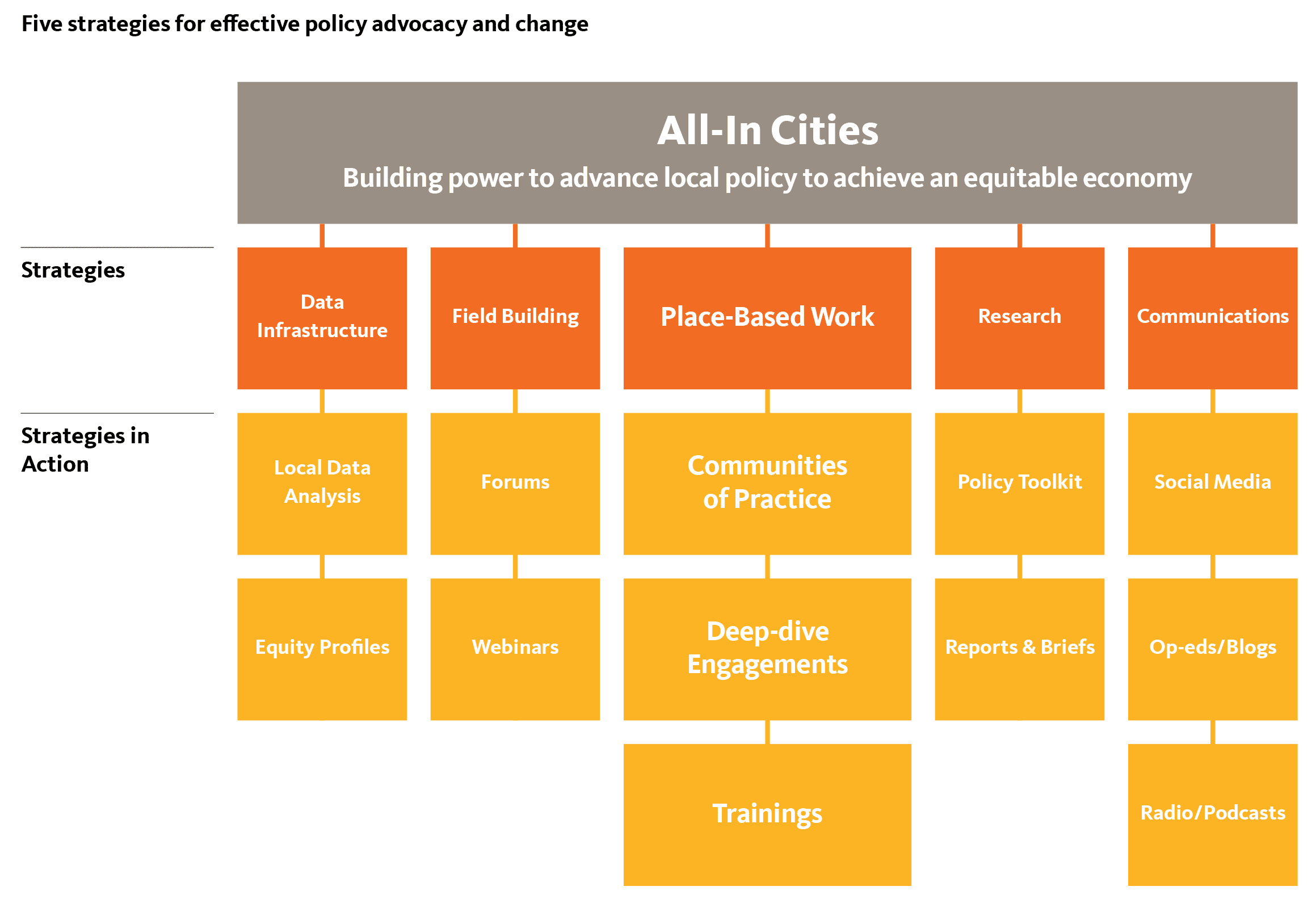Approach
What We’re Doing
Our approach is guided by the blending of the following values to achieve systems change:
- Racial Equity
Our work leads with race. As the nation moves toward becoming majority people of color, achieving equity — just and fair inclusion into a society in which all can participate, prosper, and reach their full potential — is not only the moral imperative but also an antidote to inequality and the superior growth model. That is why our team is led by people of color and includes a multicultural staff that mirrors the demographics in cities today.
- Equitable Growth
All-In Cities envisions a new model of racial economic inclusion and equitable growth through a range of policy strategies that create economic security, advance healthy communities of opportunity, build power, and promote just systems.
- Community Power
Our place-based work centers on residents and leaders of color. The PolicyLink tagline Lifting Up What Works® recognizes that local and grassroots leaders who are closest to the nation’s problems should be a central part of figuring out the solutions. We cultivate the strength and wisdom of local leaders and residents, while unleashing their creativity. This allows us to utilize an inside-outside approach — working with both advocates and government leaders — for policy change.
How We’re Doing It
At the heart of our approach is our place-based work. Our role is to accelerate the ongoing work of local leaders to advance equity, while creating the conditions necessary to enable policy change. To enhance our place-based work, we have built out data, research, and communications strategies to fuel an equitable cities movement.
These are the five strategies we believe are the necessary components for effective policy advocacy and change:
- Place-Based Work: Our communities of practice are a critical way to ensure that we are reaching the breadth and depth of places we want to advance equitable policies. These cohorts enable us to work with leaders from dozens of cities each year around critical policy areas. Our communities of practice also serve as the staging grounds for deeper engagements in cities where we work hand-in-hand with leaders to advance policy.
- Data infrastructure: The National Equity Atlas — a data project of PolicyLink and the Program for Environmental and Regional Equity at the University of Southern California (PERE) — fuels the initiative, as it helps leaders get on the same page about problems and possible solutions. Our data helps track, measure, and make the case for equity.
- Field-Building: To advance the work of the broader equitable cities field, All-In Cities hosts convenings, webinars, conference panels, and creates tools to share best practices and promising strategies in creating equitable cities for all.
- Research: Our research helps advance the work of local leaders by filling gaps in knowledge, testing new ideas, and illuminating best practices. The All-In Cities team publishes equity profiles that showcase data on specific cities, research reports on specific policy areas, and briefs to highlight key data and recommendations.
- Communications: Our communications strategy utilizes op-eds, social media, and podcast/radio interviews to educate local leaders and the public at large (local and national audiences) and invite more people to join the work and help shape the narrative around the benefits of pursuing equity.

